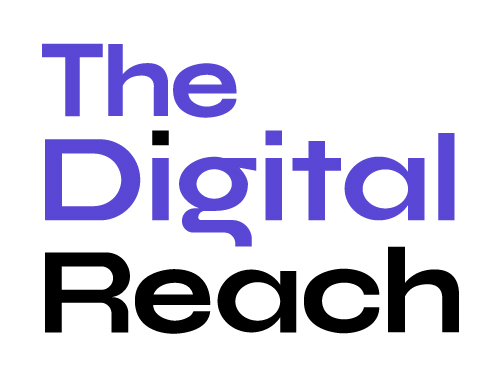This blog brings light to the key content marketing trends for B2B marketing, enabling businesses to captivate customers, convince them regarding the validity of the products and services, and optimize brand loyalty and ultimately sales.
B2B Content Marketing Trends for 2025
Content is always the kingmaker, and the same will hold for 2025, requiring a clear focus on content marketing strategy, particularly for B2B businesses to stand apart from the competition. So, let’s get started with the top 5 content marketing trends for 2025 that will define business growth and success parameters in the next year and the coming years.
Strategies:
- Focus on Personalization: 2024 is a year of meeting customers’ needs with the added element of personalization via tailored marketing and messages that specifically cater to targeted markets with ease. 75% of organizations are leveraging Artificial Intelligence to build personalized customer experiences.They are shifting from piloting projects to more strategic operationalization that enables them to create messages that closely resonate with their customers.It leads to a more satisfying user journey by optimizing vast customer data via AI algorithms, gaining valuable insights, and significantly reducing customer churning rates by up to 40%.Additionally, businesses experience a 5% to 15% boost in their revenue, leading to more business opportunities and growth. Moreover, Generative AI has entered the content marketing realm with its humongous capabilities to revolutionize the industry but it requires establishing specific standards for security and the accrual of value from it.
- Account-based Marketing: B2B marketing is adopting account-based marketing, popularly termed the ABM approach, which incorporates the use of targeted and personalized messages to highly specific accounts by building tailored content.Here, the focus is to identify the key challenges, requirements, and goals of high-value accounts, and content is created in the form of campaigns, outreach programs, and website content that meticulously looks at all aspects of these accounts.The aim of businesses using this approach is to establish themselves as the thought-leaders of the industry by further bringing in whitepapers, eBooks, tailored videos, and webinars to create a niche for themselves. This approach empowers businesses to leverage higher returns on investment with faster conversion of leads into customers.
- Optimization of Artificial Intelligence: The year 2025 will witness extensive usage of advanced AI technologies for content marketing and content generation as well. The AI will help in building personalized content for websites and chatbots.Leveraging predictive analysis, businesses can analyze data with a clear analysis of customer preferences based on geography and history and build more customer-centric content to attract their attention.Therefore, the year 2025 holds more possibilities for deeper integration of AI into content generation, leading to a more tailored approach to meeting specific customer needs, resulting in higher engagement and conversion rates.
- Video Marketing: Videos are going to play a monumental role in creating the desired impact on the target segment, and B2B businesses need to leverage videos not only for their official YouTube channel but also embedded in website content, landing pages, social media, and even email messages.The key to success is to create short and personalized videos that talk about real customers and how your product or service has helped them gain value. Sharing these videos on different social media platforms, and more importantly, on LinkedIn, enables businesses to create buzz about their potential and expertise, encouraging a better reach for maximized interest generation.
- User-Generated Content: Giving B2B customers customer testimonials, reviews, and case studies that the users have created can be crucial in fostering brand loyalty. Therefore, encouraging customers to create content to share their experiences and insights via valuable content helps build strong rapport among the leads and gives validation to a B2B business.To build credibility and trust, B2B businesses leverage social media mentions and garner the interest of users with timely replies to all queries and resharing customer testimonials to build a positive synergy about their products and services. It not only bolsters their trust and credibility but also reduces content marketing costs, as user-generated content does the job perfectly compared to competitors that only rely on synthetic marketing messages.
- Influencer Marketing: B2B marketing will focus on trends revolving around influencer marketing, with a focus on bringing keynote speakers, industry experts, and thought leaders who can share their relevant insights on the market and how your business is helping to create value for them.Inviting industry veterans to webinars and podcasts can help establish brand value among prospective clients and maintain authority among existing customers.These practices will help in building a personal connection with customers and make them understand the true value of business potential with the optimization of an amplified network of influencers and thought leaders who are considered reliable sources of information on particular subjects.Therefore, organizations can combine the expertise of influencers with their personalized messaging to generate trust in their audience.
Conclusion
To sum up, the digital landscape is gearing up for a massive shift toward building a more personalized approach toward customers, and B2B marketers need to have a more calibrated thought process with a strategic focus on delivering value via tailored services and products that resonate with customer needs. It will empower them to build strong connections with their customers, driving more engagement and innovation according to customer requirements. Overall, those B2B marketers who are ready to experiment and evolve with the aforementioned trends can entice customers and maintain a strong turf in the market.

Manpreet Kaur is a Content Specialist with 12+ years of experience creating impactful B2B and B2C content across industries. Her expertise includes SEO, content strategy, and storytelling, with work featured on Business Insider, DZone, and CIO. She excels in crafting high-quality, multi-channel content that drives engagement, builds authority, and delivers results.





